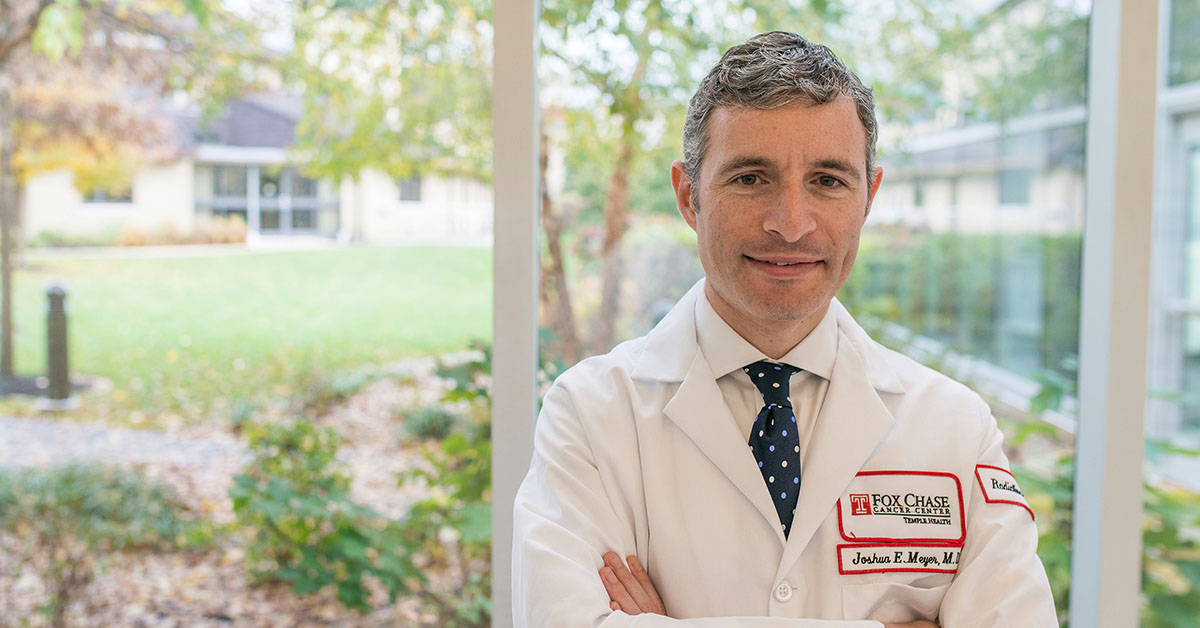
PHILADELPHIA (January 5, 2021) – Joshua E. Meyer, MD, associate professor in the Department of Radiation Oncology at Fox Chase Cancer Center, has been awarded a grant to investigate the role of local consolidative therapy with radiation in the second-line treatment of metastatic colorectal cancer.
“Typically, metastatic colorectal cancer that has progressed after first-line treatment is treated with systemic chemotherapy,” Meyer said. “However, more recently there is growing recognition that patients that have relatively few metastatic tumor sites may benefit from aggressive treatment of those metastases, allowing them to live longer without disease progression.”
Meyer and colleagues are using the grant from Varian Medical Systems, which manufactures systems for radiation oncology, to launch a randomized clinical trial to test the use of stereotactic body radiation therapy (SBRT) and surgery as a local consolidative therapy in patients with metastatic colorectal cancer. SBRT administers a large dose of radiation to patients in a smaller number of treatments.
The study will enroll patients with metastatic colorectal cancer who have progressed on one prior line of chemotherapy. Patients will be randomly assigned to either standard second-line chemotherapy or local consolidative therapy (SBRT or surgery) followed by standard chemotherapy.
One goal of the study is to measure whether or not local consolidative therapy coupled with chemotherapy delayed progression of disease compared with chemotherapy alone. Another goal is to see if researchers can identify patients that might benefit most from this treatment strategy.
Meyer said they hope to be finished accruing patients to the study in about one or two years. Metastatic colorectal cancer is not an uncommon disease, but capturing patients at the right time in their disease course to enroll in a clinical trial can be challenging.
“A lot of these patients are treated in community oncology practices and normally may not be referred to an academic center like Fox Chase until they have run through all of the standard chemotherapy options,” Meyer said. “It will be key for us to see patients at the time when they are approaching or ready to start second-line therapy.”
For more information about Fox Chase’s clinical trials, please call 215-214-1515 or visit the clinical trials section of our website.